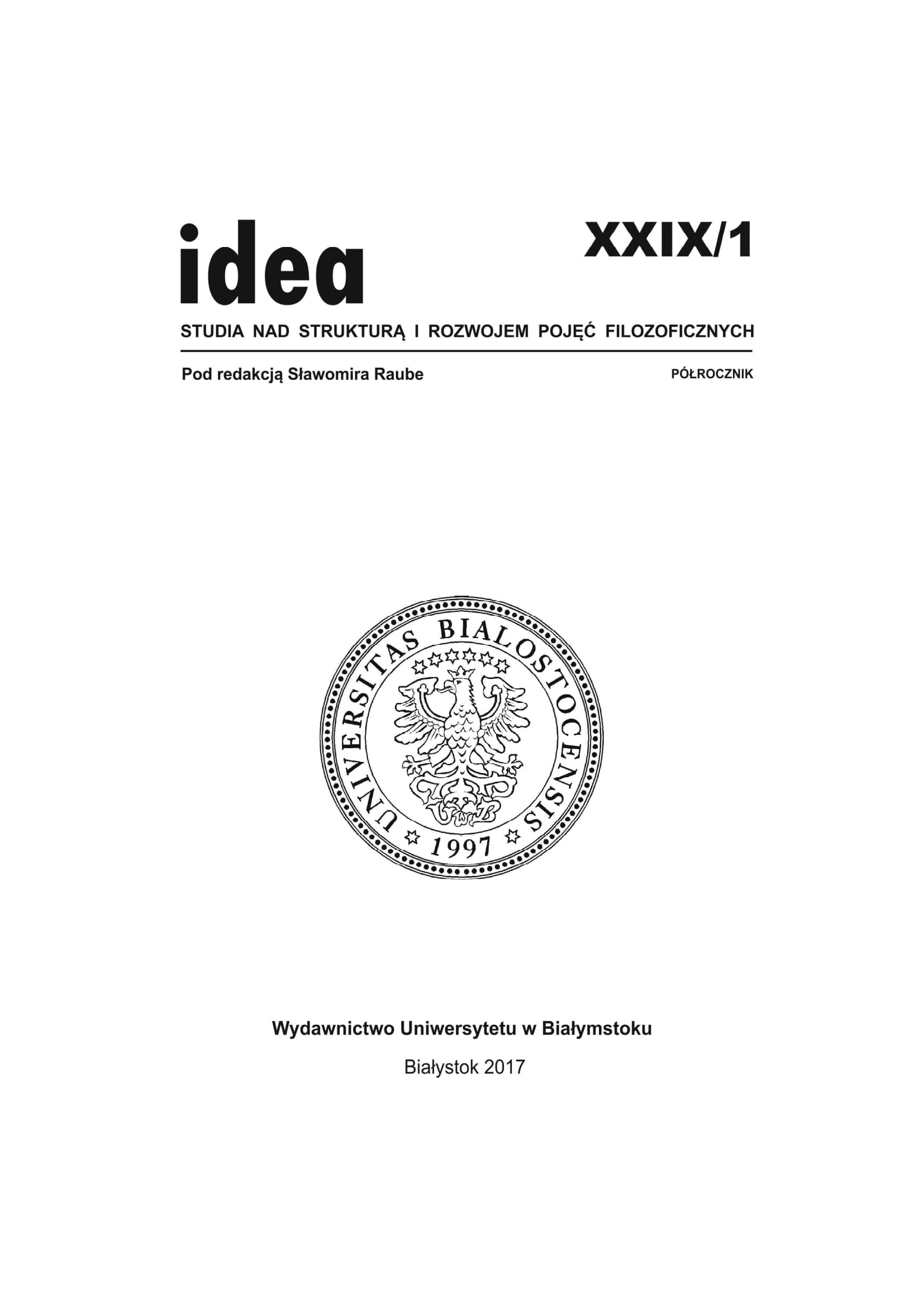Szekspir a sceptycyzm. Otello w interpretacji Stanleya Cavella
Shakespeare and skepticism. Otello in the interpretation of Stanley Cavell
Author(s): Michał FilipczukSubject(s): Philosophy, Language and Literature Studies, Studies of Literature, Special Branches of Philosophy, Other Language Literature
Published by: Wydawnictwo Uniwersytetu w Białymstoku
Keywords: Stanley Cavell; literary skepticism; philosophy of literature; Shakespeare
Summary/Abstract: According to Stanley Cavell, in Shakespeare’s Othello Desdemona plays a similar role to that of God in Descartes famous skeptical thought experiment. For Descartes, God is a guarantee of the existence of the external world including the body of thinking subject himself. The subject looks for a reference point in the world but does not find it, only God can be such a point of reference. Othello is similarly separated from the source of his own existence. His ideal imagination of himself is founded in something external to himself: in the idealized picture of Othello, whose only source is Desdemona. For Othello she (or rather her love) is an equivalent of the Cartesian God. If not for God and his real existence, the skeptic would remain trapped in the sphere of his own conceptual constructs, in the sphere of ideas. Even his own body, as an element of the external world, would be inaccessible to him. Therefore proving the real existence of God is necessary for the skeptic in order to prove his own real existence. The real existence of Desdemona, the reality of her love has a similarly fundamental meaning for Othello. Desdemona’s alleged betrayal, or perhaps even the possibility of this betrayal, is like a foundation of Othello’s being sliding out from beneath his feet. After entering onto the path of doubt Othello gradually slides into the abyss. This process does not have a logical end, thus the disproportionality of the despair, the radicalism that is shocking to the reader. Othello’s despair is driven by the power of its own dynamic, resembling the mechanism of the deepening psychosis. At this stage the mere facts of the external words has only secondary meaning for the internal decay of the mind, resembling the chain reaction. It can only by stopped by a feeling of certainty. However, since Othello cannot be certain as to the faithfulness of his wife, his uncertainty soon develops into an irrational conviction of Desdemona’s adultery. This Othello’s conviction leads protagonists of the drama to the final tragedy.
Journal: Idea. Studia nad strukturą i rozwojem pojęć filozoficznych
- Issue Year: 1/2017
- Issue No: XXIX
- Page Range: 240-264
- Page Count: 25
- Language: Polish

